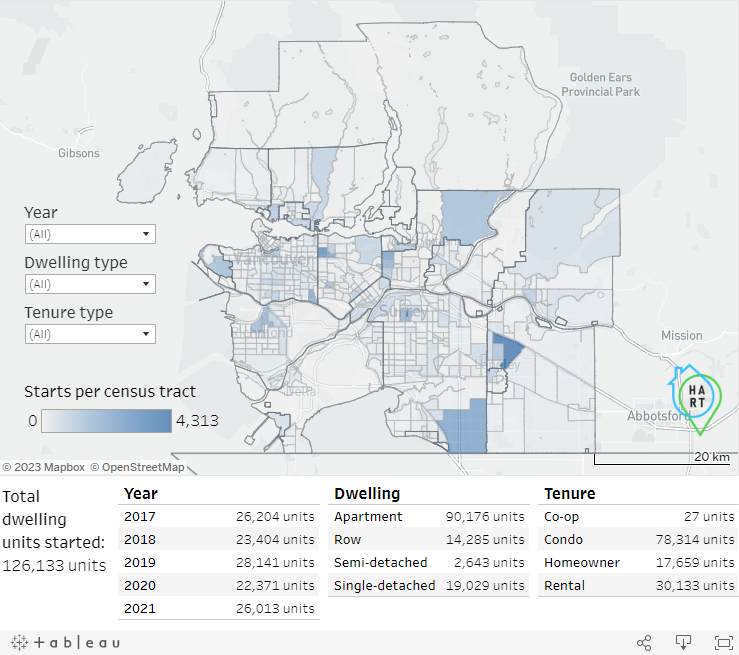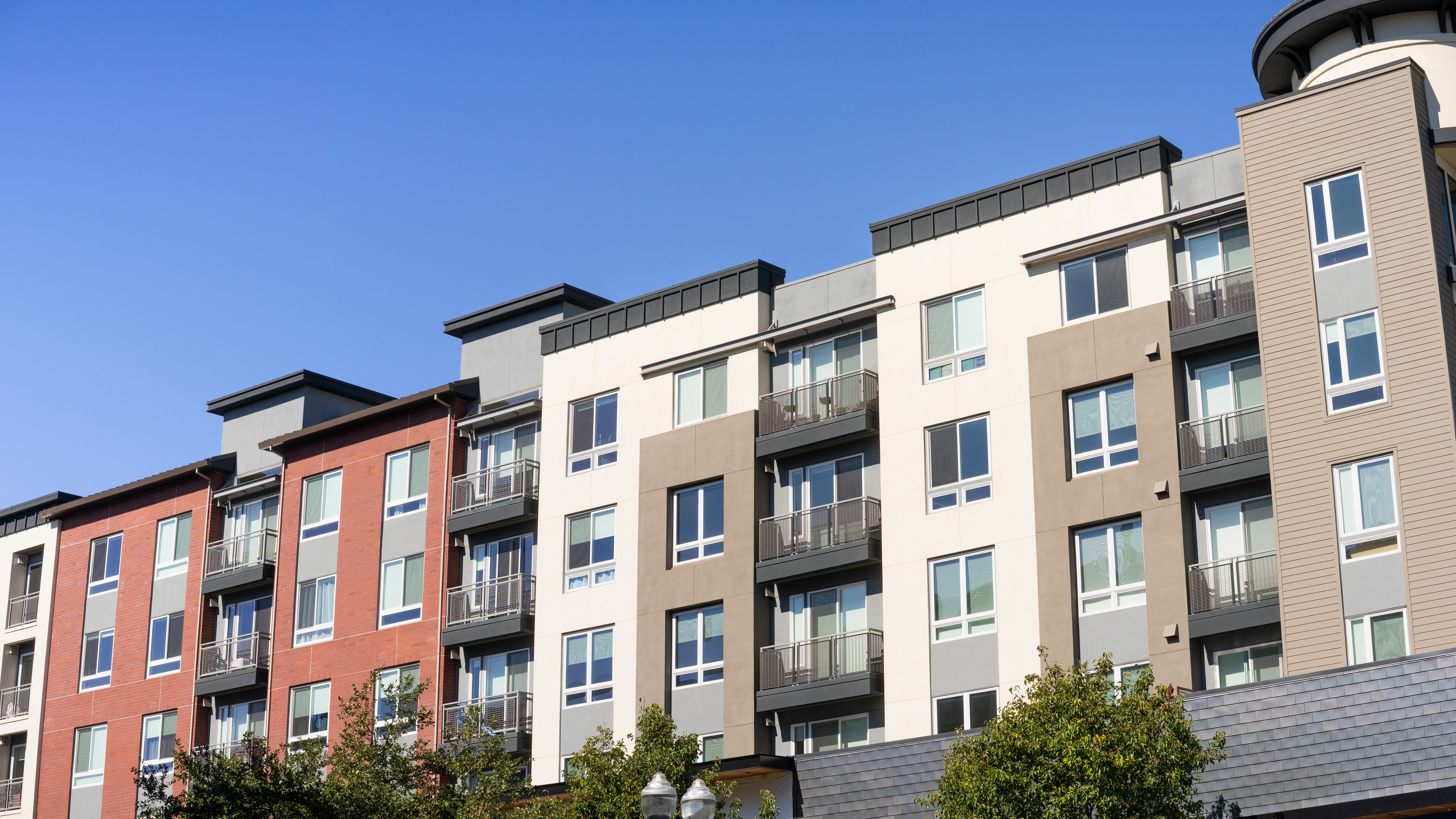The Housing Assessment Resource Tools (HART) team have created an interactive map to visualize the number of housing starts in major Canadian metropolitan areas since 2017.
The map, which can be accessed here, was developed to show what construction has started and where. You can filter by type of dwelling (apartment, row, single detached, etc.) and tenure (rental, freehold homeowner, co-op, etc.).






These maps, which show that the number of new housing units (not accounting for the housing that it may be replacing) started – defined as where a foundation has been laid – in the last five years falls far short of the 3.5 million homes required by 2030 in the recent Canada Housing and Mortgage Corporation (CMHC)’s housing supply report. Ottawa, the slowest municipality, has only built 42,949 units since 2017. In contrast Toronto, which has more cranes than anywhere in North America, has built 190,792 units. Montreal and Vancouver are second and third with 134,485 and 126,133 units respectively.
Other interesting data that has emerged from these maps:
- Only Montreal has made significant progress in co-op construction with just over 1,000 units since 2017. Vancouver and Ottawa have constructed 27 and 16 units respectively, but Calgary, Edmonton, and Toronto have had no co-op builds.
- Most of the significant building activity is occurring in the outskirts of the metropolitan area. Calgary and Edmonton’s growth has been concentrated in a few outer communities made up of largely detached, single-family homes.
- Purpose-built rental buildings are falling far behind ownership models in most metropolitan areas.
- Vacancy rates are as follows: Edmonton 7.3%, Calgary 5.1%, Montreal 3.5%, Ottawa 2.8%, Vancouver 1.2%.
- Purpose-built rentals account for a percentage of total starts as follows: Montreal 52.3% Vancouver 23.9% Edmonton 16.3%, Ottawa 15.8%, Calgary 10.9%, Toronto 10.7%.
- Housing starts in every major metropolitan area are increasing, and every metropolitan area except for Toronto and Vancouver had more housing starts in 2021 than any other year in the last five years.
HART is funded by the Canada Mortgage and Housing Corporation (CMHC). They are working with 14 municipal, regional, territorial and Indigenous governments to identify housing need and supply options to progressively realize the right to adequate housing. Find updates and data releases on twitter @ubcHART.



